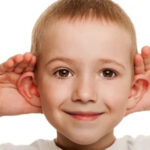APD can manifest in many ways and is highly individualized from child to child. Due to this, APD can mimic and present either very similar to other diagnoses or alongside other diagnoses that can affect children. A very common disorder that is similar to APD is Attention Deficit Hyperactivity Disorder or ADHD. Some symptoms of … Read More »
-
APD vs ADHD: Similarities & Differences
-
APD Tips for Teachers in the Classroom
It is important for your child’s teachers to have the resources and good tips on how to accommodate a child with APD best while learning in the classroom. This will allow your child to flourish at school at the same pace as their peers. ADAPTING TO THE LISTENING ENVIRONMENT: Methods to help improve student’s success … Read More »
-
Types of APD Therapies
Due to the different types of auditory processing deficits and every child being individually unique, APD may manifest itself in a variety of different ways. By finding the deficit specific diagnosis, the nature of the disorder can be determined and a unique, individual treatment plan can be designed. The goal of our comprehensive APD Testing … Read More »
-
Why are APD Evaluations Important?
The area of APD is often overlooked, unknown, or in most cases misdiagnosed. With a high prevalence of 1 in 10 school-aged kids being impacted by APD, this can be the missing puzzle piece causing delays and the inability to progress in other neuro-developmental areas. Undiagnosed and untreated APD can lead to heavy impacts on … Read More »
-
What Is APD or CAPD?
APD, or (C)APD is an abbreviation for central auditory processing disorder, a type of hearing loss. Auditory processing is a term used to describe what happens when your brain recognizes and interprets sound. It has been said that auditory processing is “what you do with what you hear”. The disorder of auditory processing indicates something … Read More »
-
What Are the 3 Main Types of APD?
There are 3 main types of APD; Integration, Decoding, and Prosody deficits. INTEGRATION DEFICIT The ability of the two ears to process sound in a balanced way, otherwise known as Dichotic Listening. Dichotic listening skills play an important role in our ability to synthesize, manipulate, and/or attach meaning to multiple auditory targets. This will impact … Read More »
-
What Are Potential Signs/Symptoms of APD?
WHAT ARE POTENTIAL SIGNS/SYMPTOMS OF APD? The American Academy of Audiologists (AAA) and the American-Speech-Language-Hearing Association (ASHA) report that common signs/symptoms of APD may include: Difficulty understanding speech in the presence of background noise Difficulty understanding rapid, muffled, or distorted speech Frequent requests for repetition of what was said (such as saying “What?” or “Huh?”) … Read More »
-
APD Screening Questionaire
Auditory Processing Disorder (APD) is a complex problem that affects the way the brain processes auditory information. Individuals with APD usually have normal structure and function of the outer, middle and inner ear. However, they cannot process the information they hear in the same way as others, which leads to difficulties in recognizing and interpreting … Read More »
-
Fisher’s Auditory Problem Checklist
Give to your child’s Teacher(s) Fisher’s Auditory Problem Checklist
-
FM System Recommendations 2023
There are basically two types of FM systems; the individual ear level devices and sound field systems. For most, but not necessarily all, APD students an individual ear level device is superior to a sound field system. Individual ear level devices include a lapel mic transmitter worn by teacher/speaker and ear level ear piece receiver … Read More »

